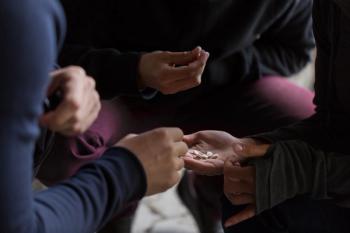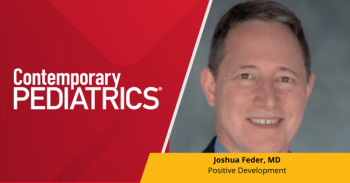
Banish burnout with passion!
Pediatricians can turn away from the path to physician burnout by finding their inner fire. Here are suggestions for finding that passion-and to keep smiling.
The Physicians Foundation 2018 Survey of America’s Physicians is the organization’s most recent survey of physician’s opinions regarding medical practice. This survey of 8774 physicians indicates that US physicians handle over 1 billion patient encounters each year. Eighty percent of physicians surveyed describe themselves at full capacity or overextended, and report that 23% of their time is spent on nonclinical paperwork.1
Perhaps most revealing is that 78% of surveyed physicians report they sometimes, often, or always experience feelings of burnout, and over the past few years many physicians feel their morale is worsening (Table 1 and Table 2).
It is no wonder that we pediatricians are at times overwhelmed by the reality of generating relative value units (RVUs) and aggravated by our schedules and regulations that are often frustrating and exhausting. Previous articles in Contemporary Pediatrics have discussed physician burnout and have detailed ways to prevent burnout from occurring, and also described methods that can be used to treat burnout once the symptoms have appeared. (See
The authors of this article believe that finding a “passion” within the context of one’s pediatric practice or in the community is one of the best methods of preventing or treating burnout and straightening one’s moral compass.
This can take a variety of forms, and there are several ways to become a compassionate pediatrician with a “passion.”
Acquire more skills!
Even though general pediatricians are nonspecialists, one can consider acquiring additional training or certifications to expand one’s scope of practice, or just seek supervised learning from consultants to improve diagnostic or therapeutic capabilities. For example, Dr. Cappetta has received additional training in the care of patients with concussions through his active involvement as a member of the American Academy of Pediatrics (AAP) Executive Committee of the Council on Sports Medicine and Fitness (COSMF) and has shared his knowledge with colleagues. Dr. Schuman is interested in patients with attention-deficit/hyperactivity disorder (ADHD) as well as patients with depression and anxiety disorders, and he has developed a telehealth practice to facilitate care for these patients.
Teach!
Pediatricians have acquired lots of knowledge over the years and it is very rewarding to teach-be it cardiopulmonary resuscitation classes, Pediatric Advanced Life Support (PALS), or neonatal resuscitation-wherever your skill set leads you. It is also fun to teach medical students, physician assistants, or nurse practitioner students should the opportunities be available. One also can teach parenting skills to young parents or hold classes for daycare providers. Not only is this rewarding, but it helps build your practice.
Dr. Cappetta ran a Newborn Father’s Group every 2 weeks for 10 years (1994-2004) for new dads and their infants as a way to help fathers appreciate the important role they play in raising their children. He also has developed a unique education program for children in the Nashua, New Hampshire, school system to stay fit and healthy and has been doing so for more than 23 years (see “Granite State FitKids”). Dr. Schuman recently started a program in his clinic where motivated premedical students can “shadow” him during clinic hours while the student is on summer break.
Rage against the status quo!
We all know that our healthcare system is breaking, so why not stop complaining and take measures to fix problems? In the wise words of the late Jerry Garcia of the Grateful Dead, “Somebody needs to do something. It’s just incredibly pathetic that it has to be us.”
Become a member of your state’s AAP chapter and work toward accomplishing achievable goals. One can work with the state AAP chapter and, if necessary, your state legislature to right wrongs and facilitate better care for children. Several years ago, the authors of this article worked with the New Hampshire state legislature to “motivate” insurance companies to reimburse pediatricians for performing instrument-based vision screening. More recently, Dr. Schuman provided testimony to the New Hampshire state legislature supporting passage of SB258, a bill mandating that clinic-based providers can provide telehealth services to patients in their residences who have either commercial or Medicaid-funded insurance. The bill was signed into law in August 2019.
Volunteer!
There are many opportunities for pediatricians to help others in the community. One can become a camp doctor or a sports team physician. One can offer to be a resource for school nurses when questions arise (Dr. Cappetta has been the official physician for multiple schools in the Greater Nashua, New Hampshire, area for the past 26 years) or serve as an adviser for daycares in a similar capacity. At your local hospital there are plenty of opportunities to serve on various committees that work toward improving patient care.
Think inside the box!
If you’d prefer to direct your passion into your practice, there are plenty of ways to reshape your practice to make it more patient- and parent-friendly, or to improve office capabilities. You can build a lending library to encourage your patients to read, or even consider having a regular story hour to entertain nervous patients. A pediatrician in your practice can volunteer to obtain the training necessary to become an ultrasound technician so that you can purchase a handheld scanner to facilitate diagnosis of bone fractures, pneumonias, or joint injuries. You can integrate telehealth into your practice if you have not already done so, or improve the practice’s mental health services by hiring a psychologist.
Cheers!
The above are just a few of the many ways pediatricians can rise above the distracting noise and confusion that leads us down the path of burnout and keep us cheerful and smiling while others frown.
Newsletter
Access practical, evidence-based guidance to support better care for our youngest patients. Join our email list for the latest clinical updates.






